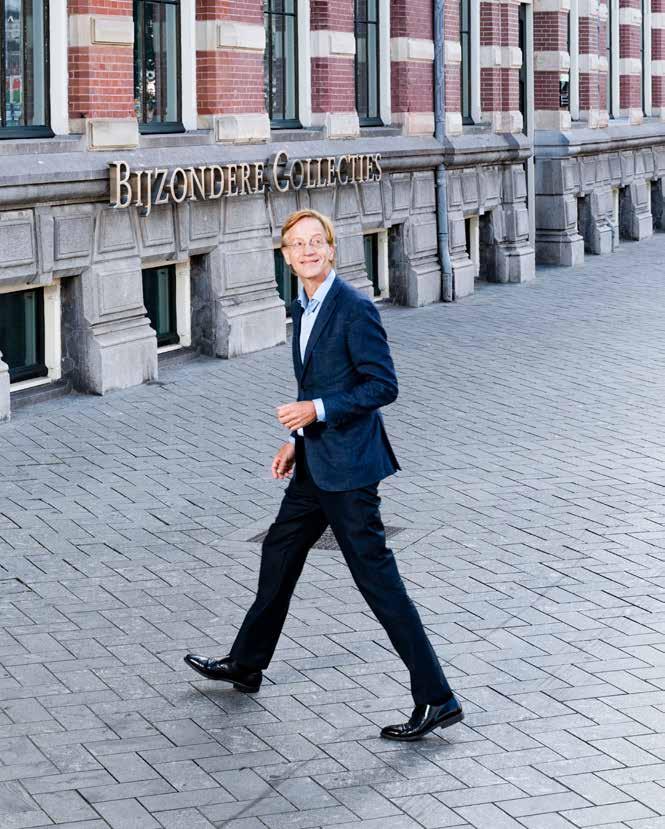
3 minute read
‘I was always visually
Anyone who thought that scientists only concern themselves with formulas is wrong. Professor of physics Robbert Dijkgraaf has always been visually oriented, as he explains in the Allard Pierson Museum in Amsterdam. ‘At the art academy, I learned what doing research really is.’
Text: Jim Jansen Photography: Bram Belloni
‘Ihave a special bond with the Allard Pierson Museum. This is the museum of the University of Amsterdam, in the most beautiful location in the city. A few years ago, there was a pop-up museum here and, as guest curator, I was allowed to set up a chamber of wonders full of scientific objects that stimulate the imagination.
That was a boyhood dream come true for someone like me who loves art so much. All my life, I have been visually oriented. I recently found my school drawings again. They looked like the writings of a sixteenthcentury naturalist, with that neat handwriting and those precise drawings. For example, I made portraits of all the felines. Every line and colour seemed to make sense. I didn’t care that I didn’t understand everything. I just thought it was beautiful.
That sense of beauty has remained. When I think about scientific concepts now, I always see them very visually. With abstract concepts, I see three-dimensional figures and beautiful colours, and I get an aesthetic feeling. When I try to understand something, it is important for me to write
WHAT IS THE THE ROLE ART?
out the calculations myself. Only when something is on paper does it become real. It becomes part of reality instead of a quirk in my head. For me, it is a way to give my intellectual adventures something to hold on to. Walking through this beautiful museum makes me think of Jacobus van ’t Hoff, the first Nobel laureate in Chemistry. He held his inaugural lecture as professor at the University of Amsterdam on the role of imagination in science. He approached the question very scientifically. He divided the two hundred most important scientists of his time into three categories. Those who had no interest in art, those who did and then the group who had, in his words, a ‘perverted’ imagination – who were into alchemy and astrology. The third list included great names such as physicist Isaac Newton, mathematician Gottfried Leibnitz and philosopher René Descartes.
Van ’t Hoff made the point that curiosity, fantasy and imagination are hugely important in science. Research is about what we don’t know yet – the unknown. Art also begins with a blank sheet of paper. You move your pencil and enter an sea of possibilities. I spent a year at the Gerrit Rietveld Academy and that is where I learned what doing research really entails. In art school, a lot of attention is paid to exploring the possibilities. The emphasis is on the process rather than the outcome. Ultimately, it is about how successful you are at pushing yourself in different directions and exploring new things. This is not how our academic education is organised and more attention should be paid to it.
Thanks to the Rietveld Academy, I have become a different type of scientist. Before I went to art school, I approached knowledge mostly in a passive way. I just wanted to get an A on an exam. I did, but that made me lose my enthusiasm. The great gift of my time at the Rietveld Academy was that I discovered that I was, and wanted to be, a researcher. I remember very well that as a Rietveld student I walked into the academic bookshop in Utrecht and thought: “I can just walk into the physics department, look at everything and choose something I feel like reading right now, without anyone expecting anything from me.” I had let the fire smoulder and there it flared up again. Science is something you have to do actively.’
Physicist Robbert Dijkgraaf is a professor at the University of Amsterdam and the director of the Institute for Advanced Study in Princeton, USA. In 2019, he received an honorary doctorate from Leiden University.









